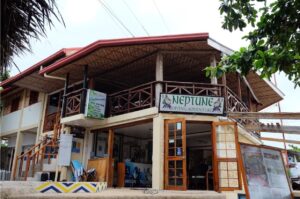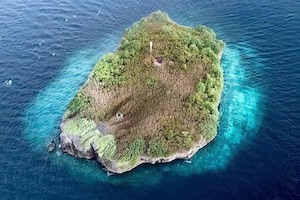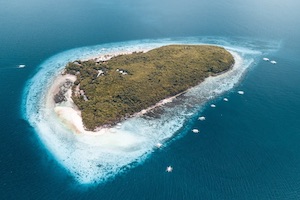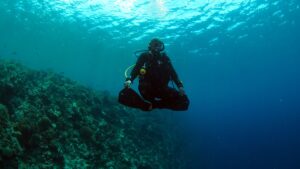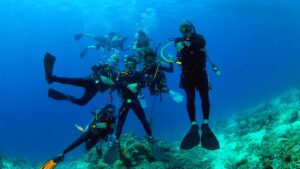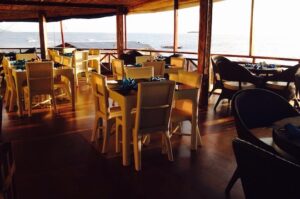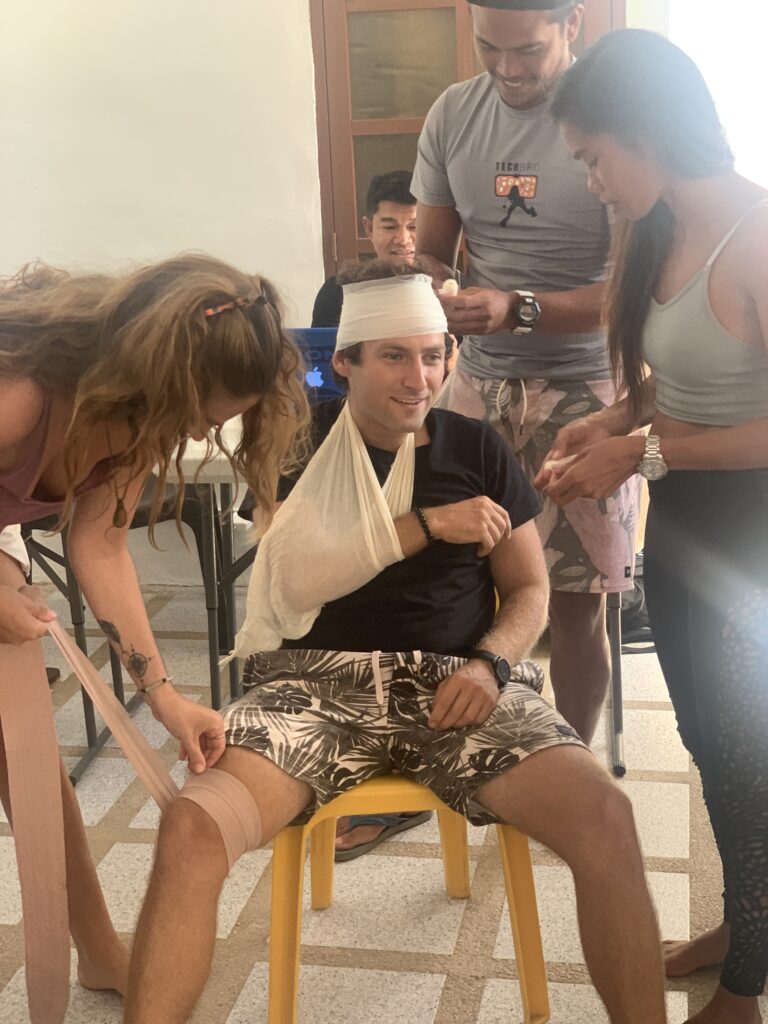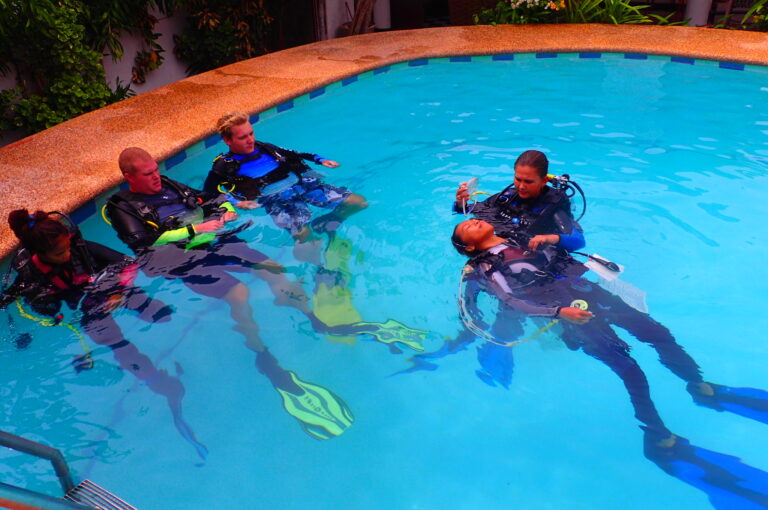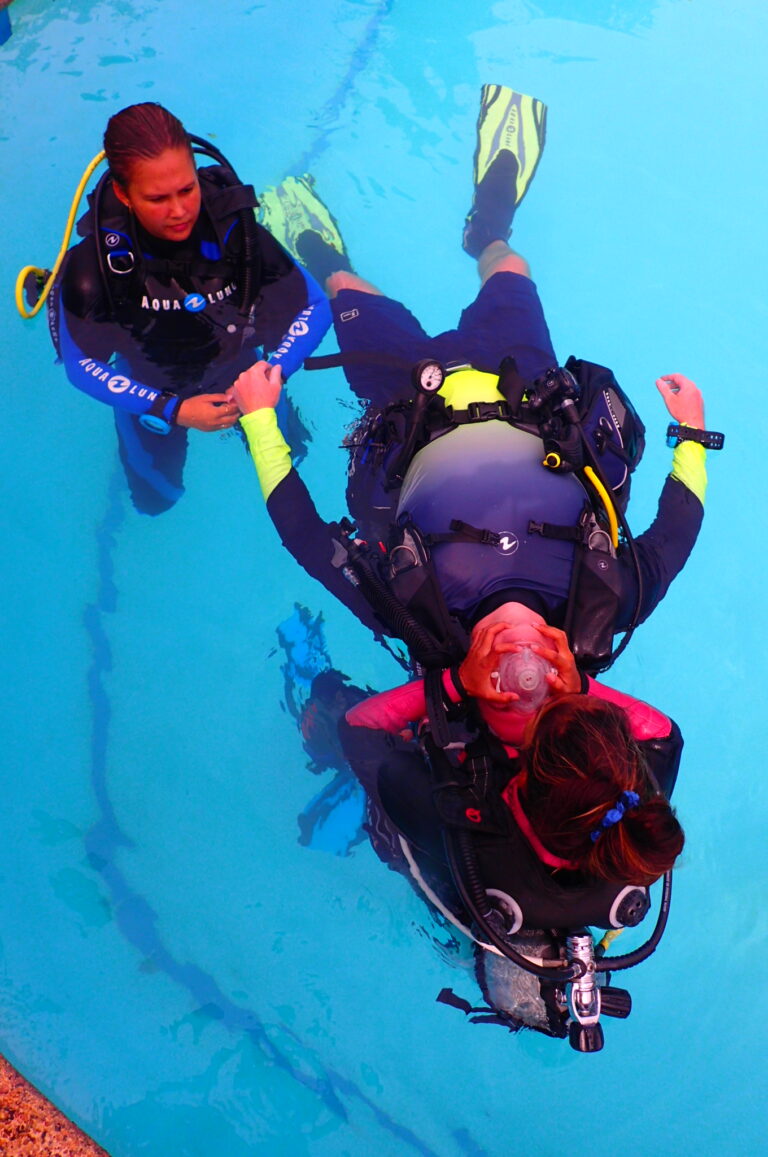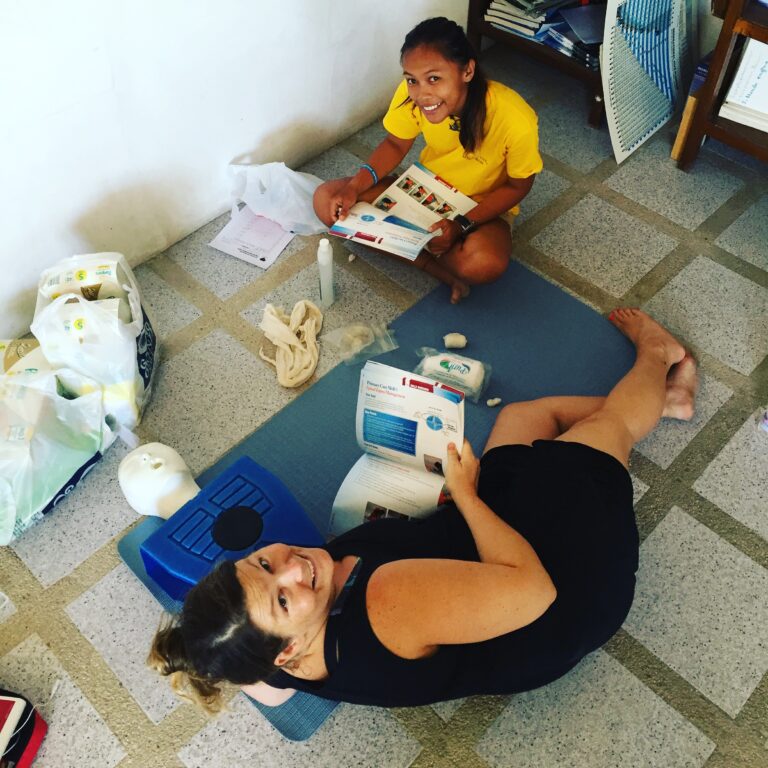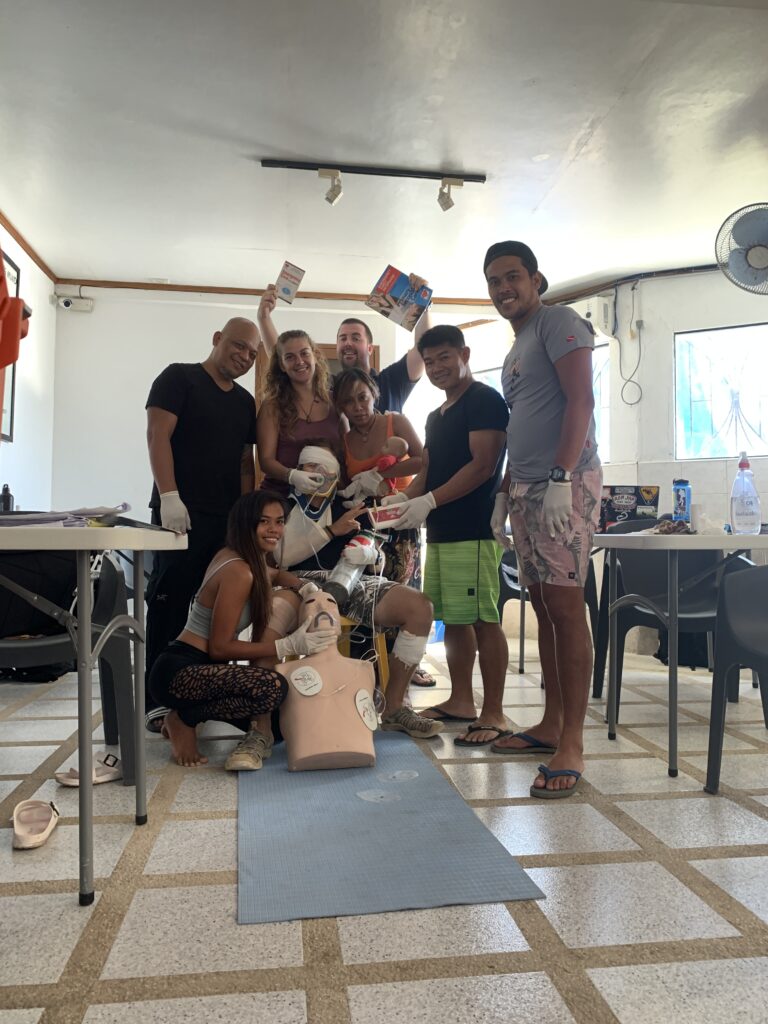Have you completed your Advanced Open Water, got a decent number of scuba dives under your weight belt and started to feel ready for your next big scuba diving challenge? Then taking a Rescue Diver course might be for you!
The PADI Rescue Diver Course
The PADI Rescue Diver course is where you begin to be more self and buddy aware.
During the PADI Open Water Course you focused mainly on yourself and mastered dive knowledge and dive skills for taking care of yourself underwater and on the surface.
The PADI Rescue Diver course is where you begin to be more self and buddy aware.
During the PADI Open Water Course you focused mainly on yourself and mastered dive knowledge and dive skills for taking care of yourself underwater and on the surface.
In the Advanced Open Water course, your focus broadened to include the environment in a variety of situations such as shipwrecks, using Enriched Air or fish identification. In the PADI Rescue Diver course you’re about to enter the next stage in which your focus broadens to include other divers (your dive buddies) and people around you – on and off the dive boat.
The PADI Rescue Diver course prepares the diver to help prevent, and if necessary, manage dive emergencies, minor and major, with a variety of techniques.
Your diver training and dive educational skills and confidence will be enhanced. Most certified Rescue Divers look back on their rescue diver training as one of the most challenging – sometimes demanding – and therefore most rewarding programs. The subject is serious but the training is superb fun.
To enter the PADI Rescue Diver Course you need to be 15 years of age and a certified Advanced Open Water diver. A current EFR (Emergency First Response) certificate or equivalent must be held also. The EFR can be arranged as a Rescue EFR package through Neptune Diving Adventure – see the course and price list for details.
The PADI Rescue Diver course is divided into diver knowledge development and open water training. The knowledge development portion develops the principles and information you need for preventing and handling dive emergencies, with topics including self rescue, diver stress, diving first aid, emergency management, e and rescue and assistance procedures for both conscious and unconscious victims on the surface and underwater.
Knowledge development is usually handled through self study using the rescue diver manual (supplied) and the PADI Rescue Diver video and review sessions prior to open water training. Your Rescue Dive Instructor may decide to schedule more formal classroom sessions to cover the knowledge section. Very much like the Open Water course manual there are review quizzes at the end of each manual section for reinforced learning.
At the end of the knowledge section there is also a final examination that will reinforce all of the topics learned within the course. The exams are not challenging if you have been paying attention during the Rescue class!
During the Rescue diver open water training your rescue instructor will demonstrate all of the skills learnt one more time with the use of a divemaster or higher rating PADI assistant.
Once all of the rescue skills have been practiced over and over you are ready for the final days training “live” scenarios – now this is where it all comes together (or not) and your rescue skills and knowledge are put to the test. There are two final “live” scenarios that your instructor will spring on you during the last day – so be prepared!
You shall at some stage be approached by a member of staff that indicates to you that he has lost their buddy. What are you going to do?
Open Water Training Exercise scenario TWO: Response, egress and management
Now a diver suddenly disappears from the surface whilst calling for assistance. Again, what are you going to do?
I can give no more away than this but suffice to say or ask – what would you do if both happen at the same time? What if something else happens on the boat whilst you are in charge? You may get a surprise.
As a PADI rescue diver you really need to be calm but alert and prepared at all times.
Never again will you wonder why some divers insist on setting their diving equipment up even before the boat has left the harbor. Readiness is the key to saving the situation and in the worst case scenario lives also.
Next course: PADI Divemaster course (the first professional diving level).

